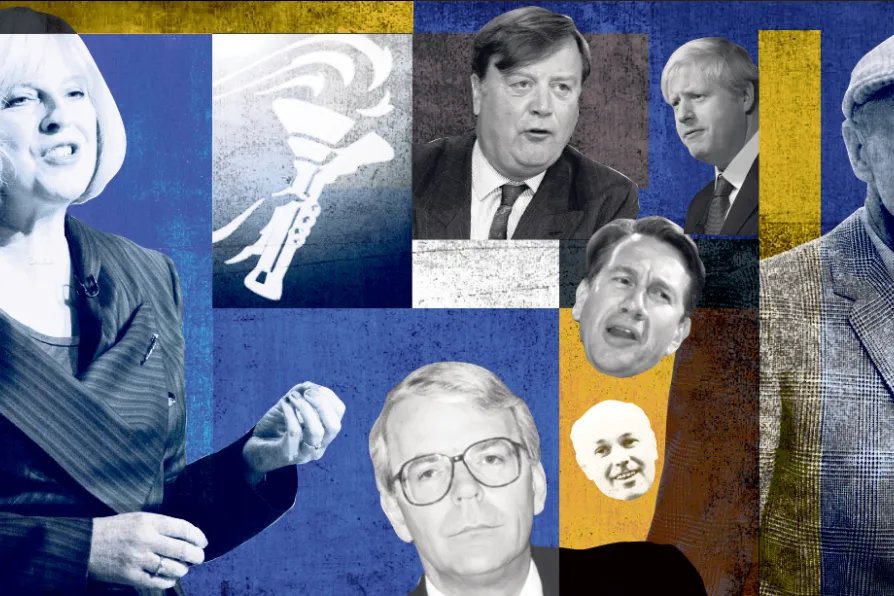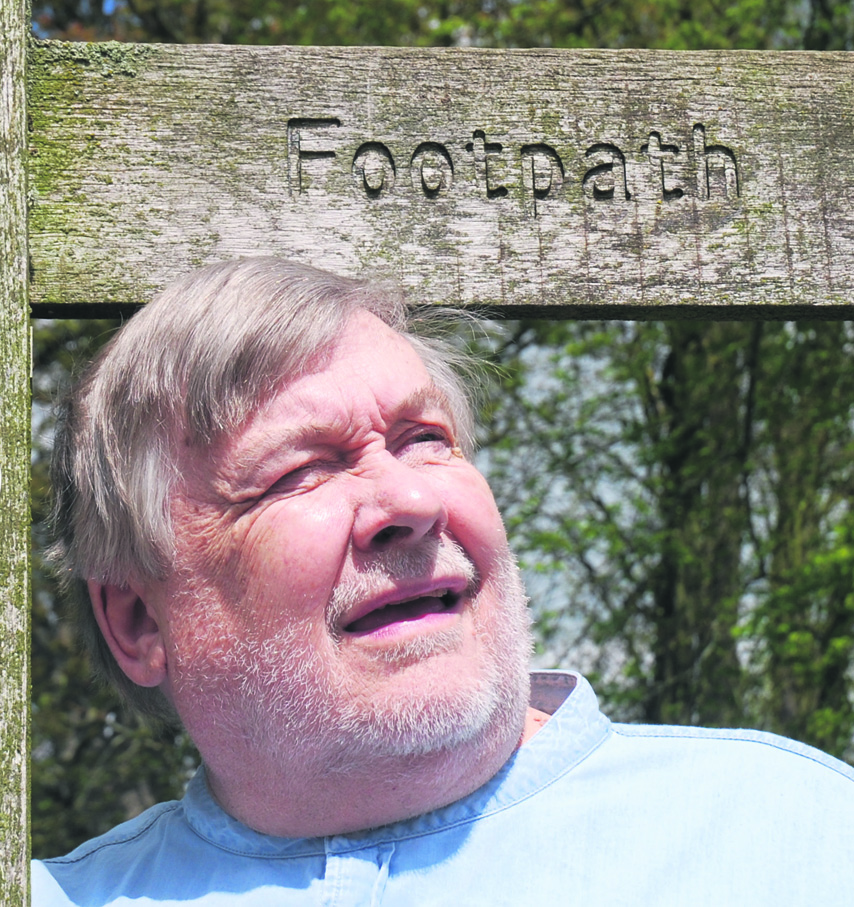Durham Miners’ Association general secretary ALAN MARDGHUM speaks to Ben Chacko ahead of Gala Day 2025


CURRENTLY the Tory Party has about 125,000 members and those members are the only British subjects who will — and only then if they are lucky — have a vote for the next prime minister.
The Tory Party is slightly smaller than the Scottish Nationalists, and the Liberal Democrats are gaining on them fast.
Chuka Umunna isn’t the only Remainer who has joined the Lib Dems. (Note to editor. Please check that Chuka is still a Lib Dem today, who knows what party he will be in tomorrow.)
For the last four or so years — since Theresa May took over unelected from David Cameron as leader and prime minister — the Tories have refused to publish membership figures as the decline was so embarrassing. Insiders report they dropped as low as 70,000.
Prime minister Cameron reluctantly released the figures at the end of 2013, showing the Conservatives had 149,800 members at that point, 134,000 in 2013 and 149,000 in 2014. In 2015 they stopped publishing figures again.
Who are the Tories recruiting? Nick Clegg, the coalition traitor, suggested in his book How to Stop Brexit that Lib Dems and other Remainers should join the Tory Party to change policy.
Once it was clear that Prime Minister Theresa May’s position was looking a bit rocky, several thousand Ukippers joined the Tory Party in time to qualify for any forthcoming leadership election.
In the meantime the Labour Party with a leader that every newspaper and TV news report tells us has never been so unpopular has 552,000 members or thereabouts. I just wish I was that unpopular.
Over the years that illusion of democratic elections for Tory leader has taken some serious knocks. But first let me introduce you to the 17-year-old Frosty. The year is 1963 and I am getting quite interested in politics and world affairs.
It was quite a year. In Vietnam the US had 23,000 US military so-called advisers. Charles De Gaulle vetoed Britain’s entry into the EEC. George Wallace became governor of Alabama and promised segregation now, segregation tomorrow, and segregation forever. Martin Luther King Jnr told the world he had a dream. US citizens were banned from visiting Cuba. Harold Wilson became leader of the opposition Labour Party. Dr Richard Beeching started slashing Britain’s railways. In South Africa many ANC leaders are arrested. Tory minister of war John Profumo slept with 17-year-old Christine Keeler and lied about it in Parliament. President John F Kennedy was shot in the streets of Dallas. Daleks, the Great Train Robbery and the Beatles were also in the headlines.
Certainly it was an amazing year for politics and in the midst of it all Tory bigwigs met secretly in a smoke-filled room and a new leader and thus prime minister emerged to replace Harold Macmillan.
He was Lord Alec Douglas Home and he needed swiftly to resign his seat in the House of Lords and hastily get elected as an MP.
Nobody except a handful of self-appointed Tory panjandrums and bigwigs knew just how the selection process worked.
In 1963 the Tories said they would make the process more democratic. But let’s look at the election of May in 2016.
It was triggered when Cameron chucked in the towel after the referendum and headed for his shepherd’s hut and his multimillion-pound book deal.
Just like this time round the buffoon Boris Johnson was the frontrunner. He dropped out unexpectedly after his campaign manager Michael Gove decided to stand himself.
The field got down to just May and Andrea Leadsom, the little-known energy minister who had lied on her CV and wasn’t prepared to make her tax affairs public.
Leadsom told the media that her having children meant she had “a very real stake” in Britain’s future. This was just days after May had spoken about her sadness at being unable to have children.
That cheap and callous dig brought Leadsom down and May became Tory leader and prime minister just as unelected as Douglas Home had been more than half a century before.
Now let’s see if the favourites always win? Well, history shows, not too often. Here are some sure things who didn’t actually get that top job.
It was 1998 when the leadership election rules finally gave the party’s members a vote for the first time. It would give a surprise result when first used in 2001.
In the penultimate ballot Ken Clarke won 59 votes, with Iain Duncan Smith 54. Michael Portillo was eliminated on 53 votes, despite being ahead in the previous two ballots.
In the final members’ vote Duncan Smith defeated Clarke by 61 per cent to 39 per cent. Portillo was seen as the very attractive candidate yet he lost by one vote.
Clarke was best known, yet the wild outsider Duncan Smith became leader. Portillo caught a train home.
The 1997 leadership election was another surprising contest. Labour’s general election landslide saw some leading Tories including Ian Lang and Malcolm Rifkind lose their seats.
Defeated prime minister John Major stood down as leader. The contest was fought under the old rules — a ballot solely of MPs without any members’ poll.
John Redwood, Peter Lilley and Michael Howard all stood, as did Clarke and the ambitious young outsider William Hague.
Redwood supporters wanted to stop Clarke and gave their votes to Hague. Clarke’s vote increased from 64 to 72 in the third ballot, but Hague’s jumped from 62 to 90, taking the leadership.
It seems that the crucial thing with the MPs’ ballots is that it’s not really about who MPs support but how they can join forces to block the candidate none of them want.
Nobody guessed that Margaret Thatcher would become leader back in 1975 when the party’s previous leader Edward Heath called a contest.
His plan was to strengthen his position. He reckoned he had enough support but Thatcher stood against him and won.
Much later the contest to depose Thatcher as leader was triggered by a challenge from Michael Heseltine.
Everyone assumed that Thatcher would see off the challenge. She won 204 to Heseltine’s 152 but this meant a second round. After initially declaring: “I fight on; I fight to win,” she withdrew from the race.
With the Iron Lady out of the race the almost unknown Major stood against Heseltine. Some of Thatcher’s rightwingers backed him.
Major finished far ahead of Heseltine and the other challenger Douglas Hurd. Heseltine and Hurd withdrew.
Howard became leader in 2003. He emerged as the unity candidate after Duncan Smith’s disastrous spell as leader ended in 2003. The parliamentary party appointed Howard without a contest.
David Davis, May’s Brexit secretary until July last year, was the early frontrunner in the 2005 contest to replace Howard, who announced he was standing down following another Tory election defeat.
Seven months later the outsider Cameron had become the leader of the opposition and subsequently prime minister in 2010.
So now we have Johnson as the darling of the party and the media, but can he get through without embarrassing himself?
His advisers are telling Johnson to keep his head down. If he gets interviewed on LGBTQ issues will he repeat his foul remarks about “bumboys” or describe equal marriage as three men marrying a dog.
Will he threaten to get his mates to beat up any journalist that crosses him as he has done in the past? Will he be able to resist calling black people “piccaninnies with watermelon smiles”?
Johnson will rely on his popularity with Tory members frustrated with the divisions in the Tory Party and the success of Nigel Farage’s Brexit oiks, not to mention his fan club in the media.
But he still has some way to go to get on that final members’ ballot. Better, and worse, Tories, men and women have tried that and failed.



















